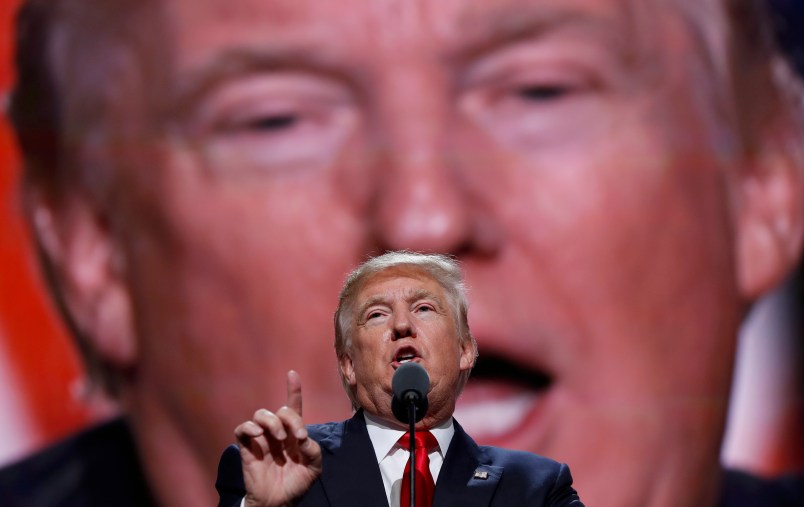Huffpo found another. During his November 9th congratulatory call with Turkish President Erdogan, Donald Trump talked up his Turkish business partner who now seems primed to be a key intermediary between the two heads of state. This new revelation follows the pattern I mentioned a couple days ago: we’re only finding out about this because it bubbled up in the pres of the country in question. That’s how we learned about Trump’s transition meeting with his Indian business partners, his alleged discussion of building permits with the President of Argentina, the UK wind farms and Nigel Farage.
On the one hand, this is pretty embarrassing for the US political press. But I’m not sure how much we should hold the reporters covering the transition at fault. I don’t say this to excuse anyone. It’s pretty embarrassing both for the press and for us as Americans that we have to learn about the incoming President’s incorrigible grifting from foreign papers. But we are in somewhat uncharted territory in terms of the complete opaqueness of this campaign, transition and soon-to-be-presidency. Much of what we know and uncover about recent presidents is due to the starting point of fairly extensive disclosure driven by a mixture of norms and laws. If you just disclose nothing, things get much harder to find out. That’s also the case if you deal exclusively with loyalists, often loyalists reinforced by punitive non-disclosure agreements.
Whatever you think of Hillary Clinton and the Clinton Foundation, a huge amount of what was uncovered over the course of the last two years was due to the fact that the Clintons had disclosed huge amounts about their Foundation, their personal taxes and much else. The State Department had disclosed thousands of her emails deemed to touch on public matters. Some of that was under court order. But the State Department could have chosen to fight those orders much more aggressively.
This wasn’t some favor the Clintons did us. This is how it should be. But absent that level of disclosure, most of which wasn’t legally mandated, most of their finances and the activities of their Foundation would be a black box.
I mentioned a few days ago a big reasons we found out about the India meetings was do to the fact that there is a substantial English-language Indian press. So it’s highly accessible to the US press, most of whom speak only English. No one had noticed the Argentine press report until TPM’s Catherine Thompson – who knows Argentina and speaks Spanish – did. The Trump campaign denied on the record that Trump had asked UKIP party leader Nigel Farage and one of the big financial backers of Brexit to help out blocking wind farms off the coast of one of his Scottish golf courses. But then, in an on-the-record, free-wheeling discussion at the Times, Trump conceded that he probably had. In this case, Trump himself was the wildcard.
The fortuitous nature of these revelations strongly suggests that Trump’s aggressive commingling of US foreign policy and his foreign licensing and construction business is pervasive, far beyond what we’ve learned already. And the US press has been largely unable to detect it.






